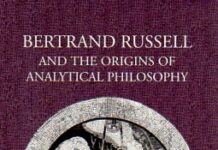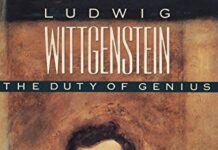
Ebook Info
- Published:
- Number of pages:
- Format: PDF
- File Size: 9.23 MB
- Authors: Ray Monk
Description
Though Wittgenstein wrote on the same subjects that dominate the work of other analytic philosophers – the nature of logic, the limits of language, the analysis of meaning – he did so in a peculiarly poetic style that separates his work sharply from that of his peers and makes the question of how to read him particularly pertinent.At the root of Wittgenstein’s thought, Ray Monk argues, is a determination to resist the scientism characteristic of our age, a determination to insist on the integrity and the autonomy of non-scientific forms of understanding. The kind of understanding we seek in philosophy, Wittgenstein tried to make clear, is similar to the kind we might seek of a person, a piece of music, or, indeed, a poem.Extracts are taken from Tractatus Logico-Philosophicus and from a range of writings, including Philosophical Investigations, The Blue and Brown Books and Last Writings on the Philosophy of Psychology.
User’s Reviews
Reviews from Amazon users which were colected at the time this book was published on the website:
⭐This is part of a series of small books designed to offer entry points to their subjects. They are not be-all and end-all summations (which, in Wittgenstein’s case, would be very, very difficult). Each discussion begins with a quote, sometimes a long quote, from Wittgenstein, which is then elucidated by Professor Monk. The task is an enormously difficult one for a series of now-obvious reasons: Wittgenstein wrote very little. We are often dealing with student notes, not finished monographs. Wittgenstein’s early thought differs considerably from his later thought. In each case the thought is complex to the point of being recondite and it is expressed in the form of oracular pronouncements rather than conventionally-reasoned sentences, paragraphs and chapters. Finally, Wittgenstein read very little in the history of philosophy so his work is detached from common rhetorical/historical contexts.Monk makes the best of his task, combining personal modesty with a deep knowledge of his subject, whose life he had written earlier. He has also written a two-volume biography of Russell, whose influence on the early Wittgenstein was extremely important.The result here is very suggestive and as successful as one might imagine given the constraints implicit in the series and the complexities implicit in the subject. Most useful to me were the sections on imponderable evidence and the possibility of a private language, since both of these link Wittgenstein to two issues of immense importance. (Broadly): Horace says that literature should both teach and please but in Wittgenstein’s time (in Wittgenstein’s judgment), science was so idolized that art was reduced to entertainment and the knowledge which it inculcated was overlooked. What is the nature of that knowledge and how important is it? Related to that issue is the current controversy with regard to consciousness, which Wittgenstein anticipates. How do we reconcile the uniqueness of consciousness with notions of a mechanistic, materialistic, deterministic universe? The importance of these issues (to me) resides in the fact that they are both `eternal’ in one sense and enormously compelling at this historic moment. Thus, we see Wittgenstein in a very different light than, say, as a time-bound inheritor and critic of logical positivism.The one section that I would have liked to have seen further elucidated was the section on language games, but in fairness to Monk I think he gives as good an account as the issue will permit. All in all, this is a superb introduction to key aspects of Wittgenstein’s thought. It does precisely what it sets out to do–it prepares the reader for more advanced study of its subject.Highly recommended.
⭐This book was my first real exposure to Wittgenstein. I was alerted to his importance reading
⭐, which stated: “Perhaps no other issue has had a more singular impact on twenty-first century thought than the ‘linguistic turn’ that occurred in the twentieth century, primarily through the influence of Ludwig Wittgenstein.” (321) Wittgenstein has been highly influential in theology and hermeneutics (
⭐,
⭐,
⭐), and I was (and am) highly interesting in understanding more about this philosopher.I settled on “How to Read” after checking out several other introductions to Wittgenstein. I was happy with the result. Monk has also written a
⭐, and understand the man and the flow of his life, not just his philosophy.After a short description of his life, Monk spends three chapters analyzing the
⭐, a work that is intimidating to tackle without help. Monk breaks down the propositions, picks out highlights, and sheds some light on the structure of the work. After a short chapter on ‘Some Remarks on Logical Form,’ he then moves into Wittgenstein’s “new philosophy,” (though of course, the relationship between the ‘new’ and the ‘old’ is material for many a dissertation), discussing
⭐mainly, as well as a couple other works, giving the briefest of introductions to the ideas of “language games” and “private interpretations.”Wittgenstein offered fascinating insights into human language and the way we use it. Monk quotes from
⭐: “We learn certain things only through long experience and not from a course in school… A connoisseur couldn’t make himself understood to a jury, for instance. That is, they would understand his statement, but not his reasons. He can give intimations to another connoisseur, and the latter will understand them.” (103-104)Ray Monk is clearly a Wittgenstein connoisseur, and his introduction is insightful and engaging. He makes difficult texts accessible to the initiated, and whets the appetite for more.
⭐A measure of my ignorance of Wittgenstein is that whilst I had puzzled over the Tractatus I had no idea that logical propositions concerning the colour of flowers unravelled its main purpose. Despite this it’s clear he believed most of that he said in it and developed his language ideas (there were no theories) beyond philosophical concerns and into the every day. His approach seems wider and more pragmatic than the ruins of philosophical assumptions he left in his wake. I’ve read Hacker, which is more philosophical in its approach but Monk’s short guide hints at much more, highlighting an intriguing man, who was never truly happy with philosophical tradition and its closed shop approach.A book that makes you want to find out more – Monk has also written a biography of Wittgenstein.
⭐Not quite as informative as I had hoped, ok Wittgenstein is certainly not easy to understand, but I had hoped this book would explain his thinking in layman’s terms, but I found it difficult to follow. I read Philosophy at University but that was over 45 years ago so maybe my brain simply isn’t up to it anymore!Wittgenstein is great for quotes, but I would like to have had a better overview of his thinking from this book.
⭐Ray Monk is always worth reading. This is a book that, while it does not demystify Wittgenstein, certainly helps explain what is going on by showing what underlies the famous enigmatic statements or propositions.
⭐This is a really excellent introduction to Wittgenstein for someone who wants some understanding but is not prepared to pay the price of tackling the originals.
⭐The book arrived promptly, and was as was as described. I would use this seller again.Not any easy read in itself, but useful as background reading to W’s main works.
Keywords
Free Download How To Read Wittgenstein in PDF format
How To Read Wittgenstein PDF Free Download
Download How To Read Wittgenstein PDF Free
How To Read Wittgenstein PDF Free Download
Download How To Read Wittgenstein PDF
Free Download Ebook How To Read Wittgenstein


